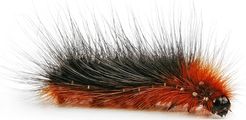Textiles on the Path to Sustainability and Circularity Results of Application Tests in the Business-to-Business Sector
The textile sector is responsible for a number of environmental impacts, e.g., climate change, and is not pursuing sustainable production and consumption patterns. Due to the increasing quantities of textiles, their share is rising, and a trend reversal from a linear to a circular and sustainable textile chain is needed. This article presents the background, methodological approach and results of a participatory textile development model. In the commercial B2B sector, three textile prototypes were developed together with users and trialed over several months in three application areas. Textile development took into account the requirements of fiber regeneration in the product design and focused on innovative more sustainable chemical recycling solutions. The three sustainably aligned textiles were subjected to spectroscopic and textile–technological tests. The sustainability tool screening life cycle assessments analyzed their environmental profile and compared it with reference textiles that are used as the standard.
Overall, it is clear that the three textiles can match conventional reference textiles in terms of quality and have considerable environmental benefits compared to the reference textiles. The user survey did identify concerns about a high artificial fiber content, although a general rejection of recycled fibers was not observed. The results show that a sustainable transformation is possible but must start with the fiber composition; recycling, on the other hand, is of minor importance.



